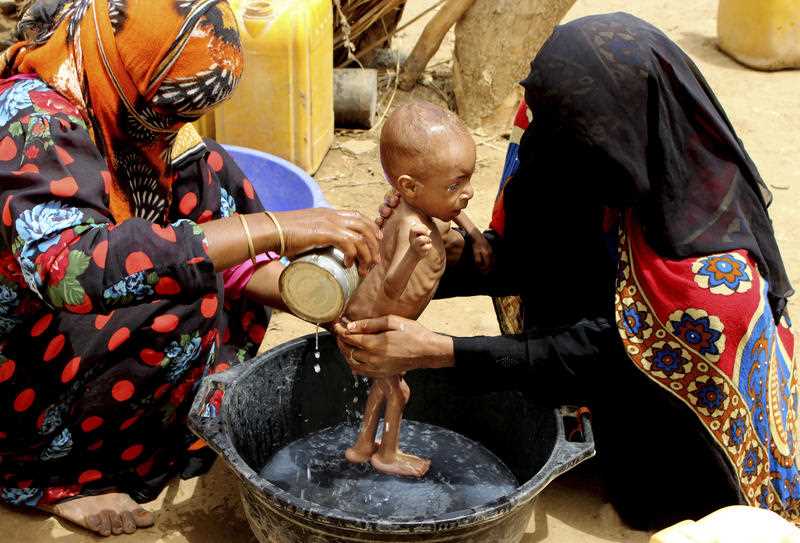The number of Yemenis on the brink of famine could rise to 12 million - or two in five of the population - from around 8.5 million in coming months due to escalating war and a deepening economic crisis, the United Nations food agency said on Monday.
Yemen has been torn apart by more than three years of civil war between the internationally recognised government, backed by a Saudi-led military coalition and based in the south, and the Iran-aligned Houthi movement that controls the north, including the capital Sanaa. The nation of some 30 million is the Arabian peninsula’s poorest. As fighting intensifies, particularly around the main port city of Hodeidah, and the economic situation deteriorates, the World Food Programme (WFP) said it feared millions struggling to make ends meet would succumb to severe hunger and disease.
As fighting intensifies, particularly around the main port city of Hodeidah, and the economic situation deteriorates, the World Food Programme (WFP) said it feared millions struggling to make ends meet would succumb to severe hunger and disease.

A severely malnourished infant is bathed in a bucket in Aslam, Hajjah, Yemen. Source: AAP
“If this situation persists, we could see an additional 3.5 million severely insecure Yemenis ... who urgently require regular food assistance to prevent them from slipping into famine-like conditions,” WFP spokesman Herve Verhoosel said.
READ MORE

Yemen crisis: How you can help
The agency is scaling up its emergency food and nutrition aid to reach 8 million Yemenis every month, he said.
The Saudi-led alliance, which is backed by Western countries led by Britain and the United States supplying weapons and intelligence, imposed a blockade on Hodeidah for several weeks at the end of last year, saying it was to prevent Houthis from importing weapons.
Yemen traditionally imports 90 per cent of its food.
All its air, land and sea ports were currently functioning, but fighting around Hodeidah was preventing WFP workers from reaching its 51,000 tonnes of wheat stocks at the Red Sea Mills facility - enough to feed 3.7 million people in northern and central Yemen for one month, Verhoosel said.

